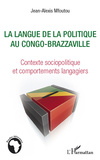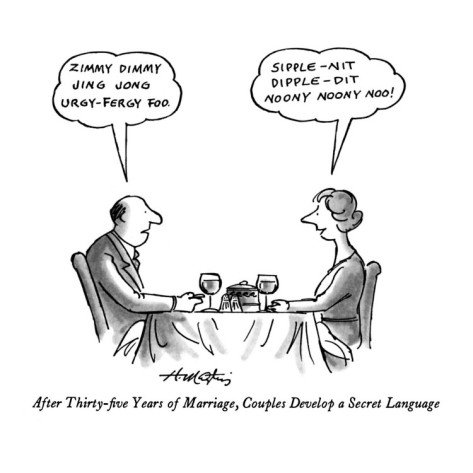02Apr 2012
In the News | Actualités
11:54 - By J-F Dupré
From The Economist: Languages on the Internet: The keenest Wikipedians
[|http://www.economist.com/blogs/johnson/2013/03/languages-internet?fsrc=nlw|newe|3-8-2013|5228019|38286426|NA]
From The Economist: Kannada, threatened at home
http://www.economist.com/blogs/johnson/2012/08/language-india?fsrc=nlw
Le bilinguisme franco-espagnol dans la littérature hispano-américaine
1890-1950
Marcos Eymar
Préface de Daniel-Henri Pageaux
De la fin du XIX siècle jusqu'à la Seconde Guerre mondiale, plus d'une dizaine d'auteurs hispano-américains de nationalités très diverses ont adopté le français comme langue littéraire sans pour autant renoncer à l'espagnol. A partir de la domination symbolique de la France exerçait sur les jeunes républicains hispano-américains, l'auteur trace les principaux éléments historiques et littéraires qui permettent d'établir l'existence d'une véritable tradition bilingue, insistant sur la double réception des auteurs.

LA LANGUE DE LA POLITIQUE AU CONGO-BRAZZAVILLE
Contexte sociopolitique et comportements langagiers
Jean-Alexis Mfoutou
Cet ouvrage met en évidence le rôle des événements et des pratiques politiques dans la conduite langagière des sujets parlants qu'il présente comme une réponse à un stimulus. L'auteur montre le nouveau rôle du français (langue refuge) et la manière dont cette langue est parlée dans le Congo-Brazzaville contemporain en proie à des conflits politiques et ethniques.

Journal of Language and Politics
The Journal of Language and Politics (JLP) represents a forum for analysing and discussing the various dimensions in the interplay of language and politics. The basic assumption is that the language of politics cannot be separated from the politics of language. The notion of ’Political Discourse’ does not remain limited to the ’institutional’ field of politics (e.g. parliamentary discourse, election campaigns, party programmes, speeches, etc.) but opens to all linguistic manifestations that may be considered to be political, provided that it is convincingly argued what makes them ’political’. In order to illuminate new and old forms of political discourses inter- and transdisciplinary perspectives and elaborated linguistic methodologies have to complement each other.
Articles should bring together sociological concepts, political theories, and historical analysis. Methodologies can be qualitative or quantitative and must be well grounded in linguistics or other relevant disciplines. They may focus on different dimensions (pragmatics, semantics, social cognition, semiotics) of political discourse. Since political discourses overlap with other discourses, e.g. economic and scientific discourses, perspectives of interdiscursivity and intertextuality are considered to be important. Articles based on ethnographic studies will be particularly welcome.
The Journal of Language and Politics welcomes review papers of any research monograph or edited volume which takes a discourse-analytical approach to the study of language and politics, as broadly conceived above. If you are interested in reviewing any recent, relevant text please email Christopher.hart@northumbria.ac.uk and we can arrange for a copy to be sent to you.
Working papers on : Linguistic Diversity and the Changing Dynamics of Political Integration

« Avez-vous French toast? »
The History of Languages: An Introduction
 Tore Janson, The History of Languages: An Introduction, Oxford University Press, 2012
Tore Janson, The History of Languages: An Introduction, Oxford University Press, 2012
The History of Languages: An Introduction (Oxford University Press, 2012) gives a brief synopsis of some of the major trends in language change over the course of recorded history. Indo-European is discussed, but the scope of the book is much wider, turning to the Bantu and Australian language families, and also to the written traditions of China and Ancient Egypt. Rather than being concerned with the linguistic regularities of change, Prof. Janson’s focus is much more on the circumstantial historical causes of change, and his work is a useful complement to work in historical linguistics – in addition to being a very enjoyable read in its own right (by Chris Cummins on April 16, 2012).

"I'm afraid you've had a paradigm shift."
New Yorker Cartoon
by J.C. Duffy
The Cambridge Handbook of Language Policy
Edited by: Bernard Spolsky, Bar-Ilan University, Israel
Over the last 50 years, language policy has developed into a major discipline, drawing on research and practice in many nations and at many levels. This is the first Handbook to deal with language policy as a whole and is a complete 'state-of-the-field' survey, covering language practices, beliefs about language varieties, and methods and agencies for language management. It provides a historical background which traces the development of classical language planning, describes activities associated with indigenous and endangered languages, and contains chapters on imperialism, colonialism, effects of migration and globalization, and educational policy. It also evaluates language management agencies, analyzes language activism and looks at language cultivation (including reform of writing systems, orthography and modernized terminology). The definitive guide to the subject, it will be welcomed by students, researchers and language professionals in linguistics, education and politics. Links

« New Books in Language » features discussions with linguists about their work, and particularly their new books
« New Books in language » est un site consacré aux auteurs qui publient des ouvrages sur les questions linguistiques
http://newbooksinlanguage.com/
LANGUE ET POLITIQUE : LES MOBILISATIONS ETHNOLINGUISTIQUES EN EUROPE
Cultures et Conflits n°7980
Collectif, Cultures et Conflits. Liens
